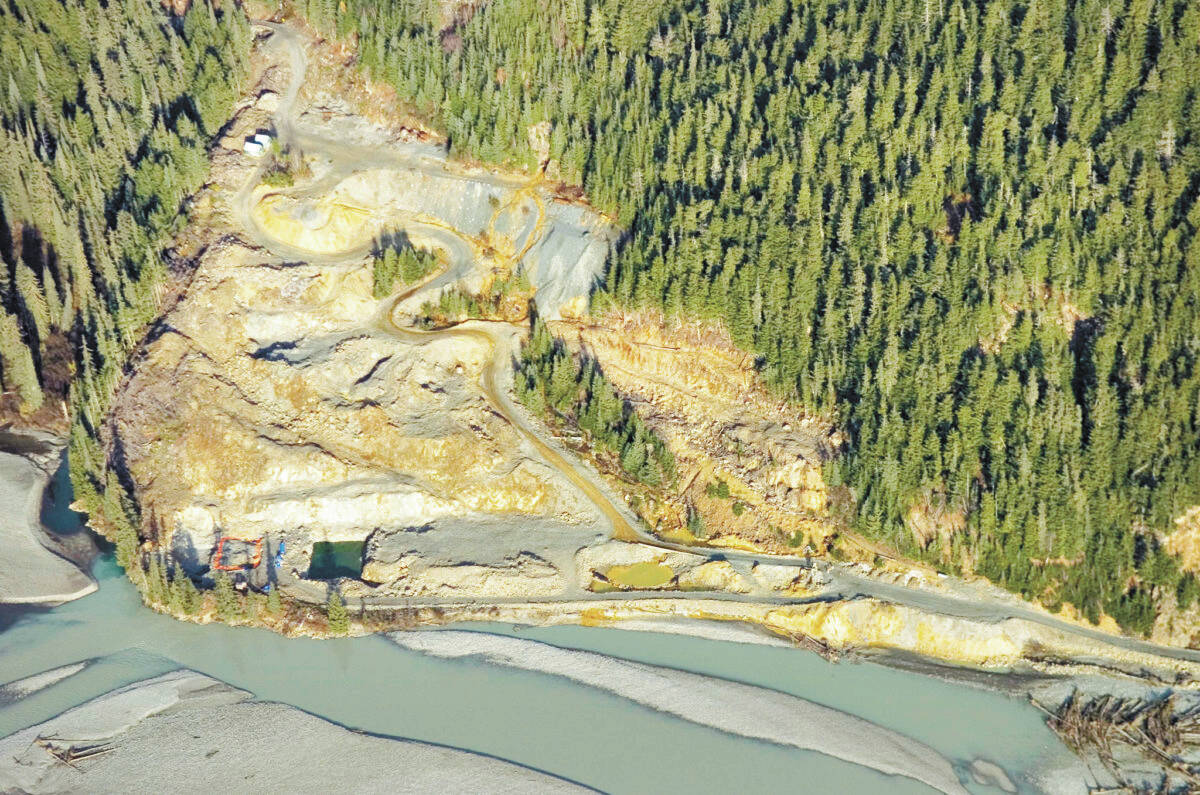In August of 2015, one year after British Columbia’s Mount Polley mine waste dam disaster, I joined the Empire’s editorial board to listen to then-B.C. Minister of Energy and Mines William “Bill” Bennett make compelling, empty promises.
A year and a half before, I had begun reporting for the Empire on the issue of B.C. mines along Alaska-B.C. transboundary rivers. Bennett’s mission while in town — though he would probably describe it differently — was to defuse concern about B.C.’s massive mining development and poor track record upstream of Alaska, and to weaken locally-driven efforts to meaningfully address it. He was very good at his job. That one-hour meeting resulted in an editorial headlined “Bennett’s visit reason for cautious optimism.”
When I asked Bennett about the involvement of the International Joint Commission, which prevents and resolves disputes under the Boundary Waters Treaty of 1909, and which Alaskans and tribes had long been requesting, he told me this: “It’s very much premature to start rushing towards, you know, one big solution that’s going to make everybody feel better.”
Instead of IJC involvement, Bennett’s visit led to a nonbinding, unfunded agreement, or Memorandum of Understanding, between the state of Alaska and the province of British Columbia, as well as a nonbinding “Statement of Cooperation,” or SOC. A year after signing the statement, Bennett retired from government and joined the boards of companies looking to develop gold-copper mines along the Stikine River and the Portland Canal.
Since Bennett’s Juneau visit, B.C. has doubled down on industrializing the headwaters of our shared wild salmon rivers without our consent downstream. Almost 90% of the B.C. side of the Unuk River is staked with mining claims, actively being mined, or under development. All lands directly bordering the Iskut, the largest tributary to the Stikine River, are staked for mining or under development. The Tulsequah Chief mine, an underground B.C. gold mine in the Taku River watershed that was abandoned in 1957, continues to leach sulfuric acid and contamination into shared waters, despite B.C.’s promises for decades to clean it up and Bennett’s assurances in 2015. An expert analysis last year highlighted that six of B.C.’s riskiest massive mine waste dams are located on transboundary systems – and are predicted to “destroy ecosystems and/or kill people when they fail.”
In the last four years, under Gov. Mike Dunleavy, the transboundary working group established under former Gov.Bill Walker and Lt. Gov. Byron Mallott has basically disbanded; the state’s webpage on transboundary issues hasn’t been updated for two years; and a single 2021 Zoom call organized by the State and B.C. and billed as “transparency” was closed to questions from tribes, community members, and organizations. Alaskans now find out about new B.C. mine development bordering Alaska not from the state but from our own research, including the proposed reopenings of the Eskay Creek and New Polaris gold mines along the Unuk and Taku rivers.
That’s why over the last couple of years nine Southeast Alaska municipalities and seven Southeast Alaska tribes have passed powerful resolutions. They call for a permanent ban on British Columbia’s mine waste dams in transboundary systems, and a temporary pause on new B.C. mining development until all of those impacted have true seats at the table to have a meaningful say in the future of shared salmon rivers.
So perhaps it’s no surprise that, given this momentum, B.C. mining ministry representatives are once again coming to town this week. While it’s good for B.C. to acknowledge us Alaskans, I suppose, their mission is likely much the same as Bennett’s almost eight years ago: to forestall the binding, federal action Alaskans and tribes have long requested.
In the end, no matter what B.C. officials say while in town this week, Southeast Alaskans don’t need another eight years of broken promises, misdirection, and failed handshake agreements from British Columbia. We need the U.S. federal government to secure international, binding action that will ensure tribes and Alaskans downstream have a meaningful voice for our wild salmon rivers, as is provided for under international law.
Why would we settle for anything less?
• Mary Catharine Martin is a former Juneau Empire reporter and the current communications director for SalmonState and Salmon Beyond Borders. She won an Alaska Press Club award and first place in the Morris Journalism Excellence awards for her watchdog reporting on transboundary mining.

